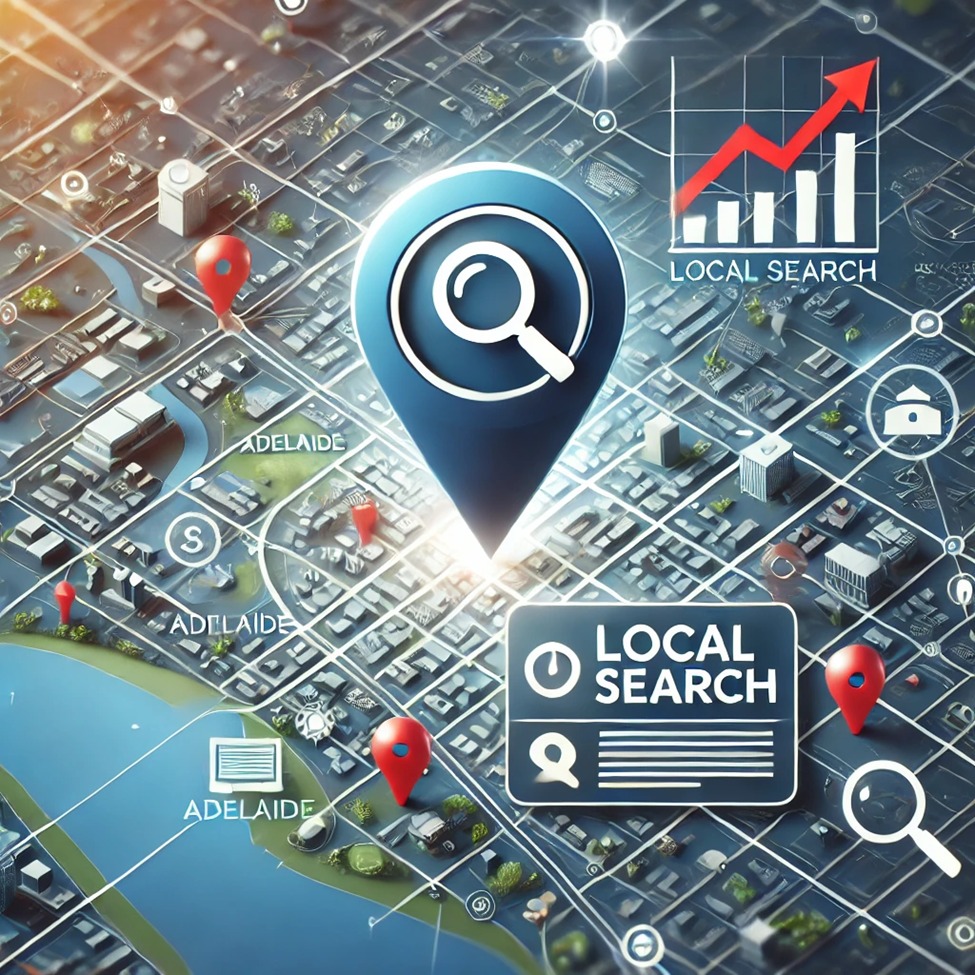Local SEO has become increasingly important for businesses aiming to attract customers from a specific geographic location. As more consumers rely on search engines to find nearby products and services, optimizing your website for local searches is critical. Whether you’re a small business owner or a marketer, understanding how to improve your local SEO will help you rank higher in search results and attract more customers from your area.
What is Local SEO?
Local SEO (Search Engine Optimization) focuses on optimising a business’s online presence to attract more customers from relevant local searches. These searches often include geographic qualifiers such as city, town, or “near me.” For example, if someone searches for “coffee shop in Adelaide,” local SEO ensures that the most relevant and nearby coffee shops appear in the search results.
Key Elements of Local SEO
1. Google My Business (GMB) Listing
One of the most critical aspects of local SEO is setting up and optimising your Google My Business profile. GMB provides essential details about your business, including location, hours of operation, and customer reviews. Ensure that your GMB listing is complete and regularly updated to improve your visibility in local search results.
2. Local Keywords
To rank higher in local searches, incorporating location-specific keywords is a must. For instance, if you own a digital marketing agency in Adelaide, it’s crucial to use keywords like local SEO in Adelaide within your website’s content and meta descriptions. This makes it easier for search engines to understand your location and target market.
3. NAP Consistency (Name, Address, Phone Number)
It is vital to have consistent and accurate NAP information across all online platforms, including your website, social media, and business directories. Any discrepancies can confuse search engines and lower your local search ranking.
4. Online Reviews
Positive online reviews, particularly on Google and other trusted platforms, significantly affect your local SEO rankings. Encourage satisfied customers to leave reviews and always respond to them professionally, whether positive or negative.
Tips for Improving Local SEO
Now that we’ve covered the basics, here are some actionable tips to help you boost your local SEO efforts:
1. Optimise Your Website for Mobile
A vast majority of local searches are conducted on mobile devices, making it critical to ensure your website is mobile-friendly. Google has even introduced mobile-first indexing, meaning your mobile site is the first version of your website that Google looks at when determining rankings. Ensure that your site loads quickly and is easy to navigate on smartphones and tablets.
2. Local Link Building
Local backlinks are essential for improving your website’s authority in your area. Partner with local businesses, participate in community events, or sponsor local charities to earn links from relevant, high-quality local websites. A strategic partnership with an agency like Aussie SEO can also provide valuable insights into optimising for the Australian market specifically.
3. Create Locally Relevant Content
Creating content that resonates with your local audience can significantly boost your local SEO. This could include blog posts about local events, guides to your area, or news updates that relate to your business or industry. For example, if you’re a restaurant owner, you might write about local food festivals or the history of your city’s food culture.
4. Leverage Social Media for Local Engagement
Social media platforms can be powerful tools for boosting local engagement. Regularly posting on your business’s social media accounts and using location-specific hashtags can increase your visibility among local audiences. Facebook, for instance, offers check-ins and local group features that help attract customers in your area.
5. Local Citations
Citations are mentions of your business’s name, address, and phone number (NAP) on other websites, such as directories, review platforms, and social networks. Ensure your NAP information is consistent across all these citations. This not only helps search engines verify the legitimacy of your business but also improves your local SEO ranking.
6. Focus on Long-Tail Keywords
Long-tail keywords are more specific and typically have a lower search volume, but they often convert better because they indicate a higher level of user intent. For example, instead of targeting “SEO services,” target “affordable local SEO services in Adelaide” to capture more qualified leads.

Like other areas of digital marketing, local SEO isn’t a “set it and forget it” strategy. Regularly monitoring your rankings, traffic, and engagement is key to identifying what’s working and what needs improvement. Tools like Google Analytics, Moz Local, and Google Search Console can provide valuable insights into how well your local SEO efforts are performing. Adjust your strategies based on these insights to stay ahead of the competition and maintain your rankings.
Conclusion
Improving your local SEO is crucial to growing your business and attracting more local customers. By optimising your Google My Business profile, focusing on mobile-first design, using relevant local keywords like local SEO in Adelaide, and actively engaging with your community, you can significantly boost your visibility in local search results.
For those looking for expert guidance on local SEO strategies, working with a specialist like Aussie SEO can help you navigate the complexities and achieve better rankings more quickly. Taking the time to improve your local SEO will ultimately lead to greater online visibility, more customers, and increased revenue.

